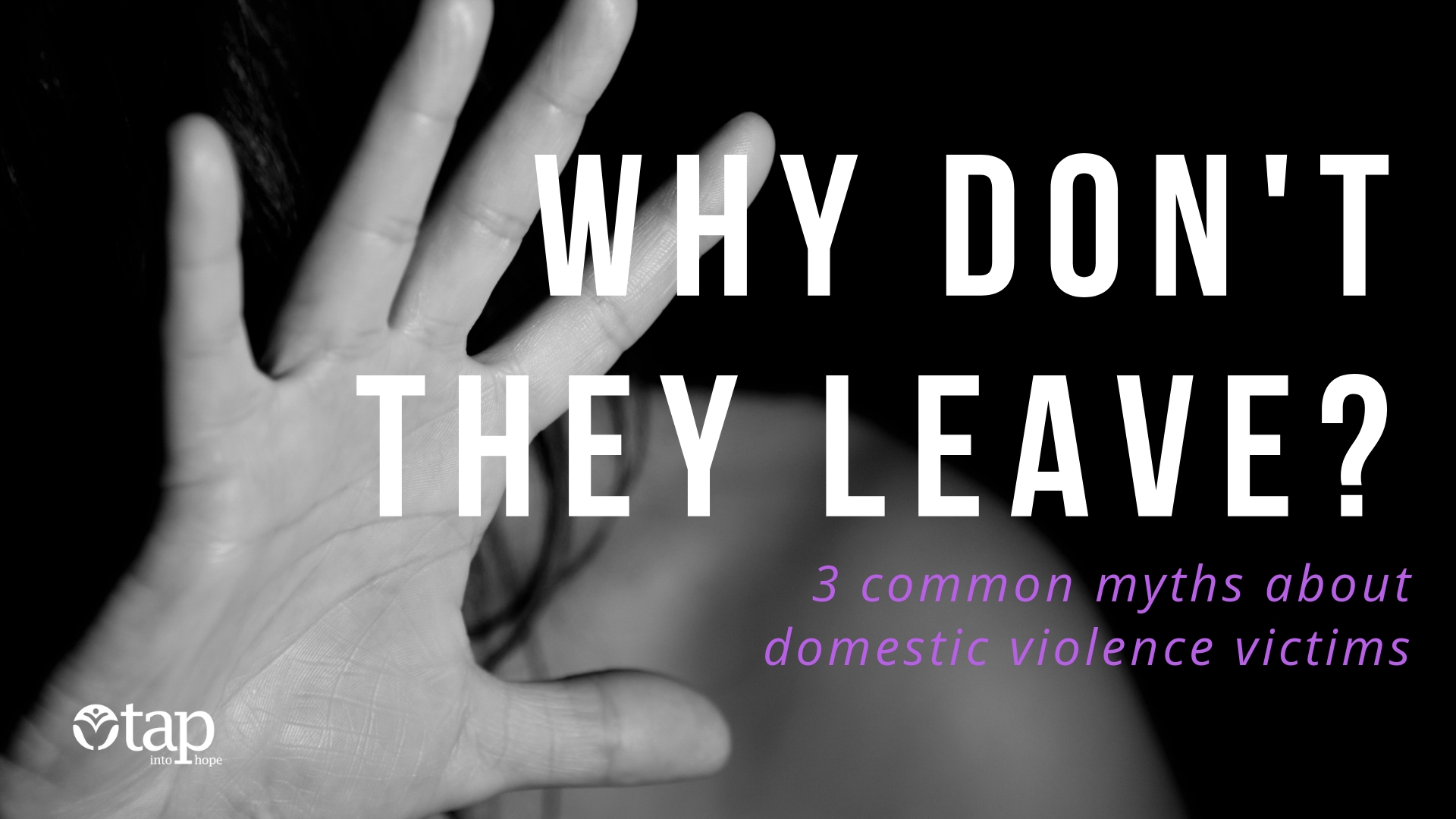Someone you know has likely suffered through domestic violence
Domestic violence is common. Very common. About one in every four women and one in seven men has experienced it. Despite how frequently it occurs in our society, the myths about domestic violence can cause us to do the wrong thing when trying to help.
In my work assisting domestic violence survivors, the question that I’m asked most frequently is “Why don’t they just leave?”
The truth is that most domestic violence situations are complicated by a number of factors. An abuser can use different fears as leverage in order to trap a survivor or limit their options. For example, a male client once told me he stayed with his abuser because he knew that it would make his kids safer. He said that if she was hitting him, then he knew she wasn’t hitting their kids. That need to be close to his kids, and to have firsthand knowledge they were safe, was far more important than his own physical safety.
And, further complicating the matter, many male survivors perceive that they will struggle in court to prove that they are victims of abuse and that they should retain sole custody of their children.
Where to start?
Each situation is different. The best thing you can do to help is be an advocate—to listen and to support, offering counsel, but always remembering that abuse is a form of control, and empowering survivors means they must make their own decisions. After all, they’re the ones who have to live with the consequences.
With that in mind, one of the best things you can do for someone is to make sure they don’t have to navigate a complex, dangerous situation alone. Refer them to a domestic violence hotline, such as TAP’s 24/7 help hotline at 540-580-0775. Abusers are often able to perpetuate their abuse because they isolate their victims.
Three common myths
Seeing past all the myths and misunderstandings about domestic violence goes a long way in developing a helpful, supportive perspective.
Myth #1:
DOMESTIC VIOLENCE ONLY HAPPENS IN POOR FAMILIES.
Domestic violence occurs throughout all levels of society. There is no evidence that suggests that any income level, occupation, social class, or culture is immune from domestic violence. At TAP DVS we see a wide range of clients, from clients with no income to professionals with PhDs. The HBO short series Big Little Lies demonstrates this phenomenon and is a great example of how common abuse and violence are in many relationships.
Myth #2:
DOMESTIC VIOLENCE IS ALWAYS PHYSICAL ABUSE.
Domestic abuse and intimate partner abuse do not always leave a bruise or a broken bone. In fact, the majority of clients that we see have experienced other types of abuse like financial, mental/emotional, sexual, coercion, harassment, stalking, and poly-victimization (multiple types of abuse). Sometimes the emotional and financial abuse leaves a larger scar than the physical abuse. The feeling of another person controlling your life has profound and lasting effects; these wounds can take years to heal.
Myth #3:
VICTIMS HAVE THE TYPES OF PERSONALITIES THAT ATTRACT ABUSIVE PARTNERS AND ENCOURAGE ABUSE.
This is a form of victim-blaming and it is very common in our society. A number of studies have determined that there is no standard set of personality traits among victims of domestic violence. It is helpful to remind ourselves that the batterer is responsible for the battering, not the victim. We often turn the table back on the victim in abuse cases, especially assaults and sexual assaults, instead of rightfully placing blame on the abuser. Remember: no one asks to be raped, beaten, or abused.
What to do if you think someone is in danger:
Learning these facts will help you become more informed, but it’s only the first step. Learn about the resources in your region in case you need to help someone out of a situation. If you’re worried about someone, recommending they seek out resources is much more likely to be successful if you can name some of those resources and how they can help—it could make the difference between life and death.
If you or someone you know in the Roanoke region has been abused, TAP DVS has a 24/7 hotline at 540-580-0775. If you are unsure of the local resources in your region, call the U.S. National Domestic Violence Hotline at 1-800-799-7233. We can all be a source of hope!
Written by the director of TAP’s Domestic Violence Services

